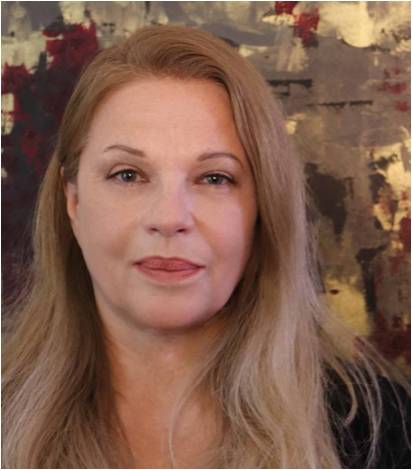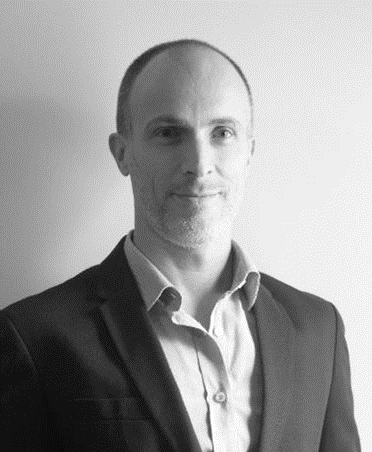

Keynote Speaker 1:
 Professor Birgitta Dresp-Langley UMR 7357 CNRS-Strasbourg University, France
Professor Birgitta Dresp-Langley UMR 7357 CNRS-Strasbourg University, France
Date/Time: Monday, August 12, 2024, 5.40-6.40 pm.
Speech Abstract
Self-organization is a major functional principle in the living brain. This keynote develops on theoretical underpinnings of this concept to illustrate why it is also the mechanistic foundation of all forms of adaptive learning and intelligence, from the synapse to integrated neural networks, which are present in a large range of species from mollusks to the human primate. Starting with the single-synapse model of Hebbian learning, it is then clarified why the neurobiology, psychology and mathematics of self-organization deliver powerful models of knowledge generation across hierarchically organized, from-simple-to-complex, levels of functional integration. As a basis of adaptive intelligence, from sensory to cognitive learning and representation, the specificity, modular connectivity, and plasticity of biological neurons and networks allow function to grow independently. Without increasing structural system complexity, self-reinforced activity-dependent learning achieves stable representation while minimizing computations. Insights into the development of brain self-organization across evolution (phylogenesis) and a single human individual’s lifespan (ontogenesis) permit establishing the often missing functional link between mental and physical processes by clarifying how physical properties are encoded, acted upon, and transformed by adaptive intelligence. How novel solutions for robotics, where the activity of connections directly determines performance without necessity to add control functions, can arise from principles of self-organization is brought forward.
Keynote Speaker Biography
Prof. Dr. Birgitta Dresp-Langley was born in Berlin, Germany, and currently a Full Research Professor (Directeur de Recherche) with the Centre National de la Recherche Scientifique (CNRS) in France. Obtained her PhD in Cognitive Psychology at Paris Descartes University in 1991 with the highest distinction summa cum laude. Subsequently joined Prof. Dr. Lothar Spillmann’s lab at the Institut für Biophysik of the Neurozentrum der Universität Freiburg in Germany, where she was appointed as an Associate Researcher in the framework of a grant programme of the Deutsche Forschungsgemeinschaft (DFG). Joined the Centre National de la Recherche Scientifique (CNRS) in 1993. Her scientific interests reside in the field of cognitive science, broadly focusing on human perception, learning, intelligence and biologically or human-inspired Artificial Intelligence (AI). Habilitation in Behavioral Neuroscience and Computational Philosophy with the highest distinction summa cum laude at the Université Louis Pasteur Strasbourg (now Strasbourg University) in 1998. Author of more than 100 articles in peer-reviewed multidisciplinary science journals, several science book chapters, acts as an independent scientific expert to the European Commission since 2019, and sits on the Editorial Board of international science journals released by Elsevier, Frontiers, and MDPI.
Keynote Speaker 2:
 Professor Vicenç Torra Umeå University, Sweeden, Spain
Professor Vicenç Torra Umeå University, Sweeden, Spain
Date/Time: Tuesday, August 13, 2024, 5.40-6.40 pm.
Speech Abstract
Masking methods are the data protection mechanisms defined to protect data. For an effective data protection, protected data needs to be assessed using disclosure risk measures, and information loss / utility measures. In this talk we will discuss some mechanisms for data protection as well as metrics for both information loss and disclosure risk. In particular, we will discuss metric learning for a correct estimation of reidentification risk.
Keynote Speaker Biography
Vicenç Torra is Professor on AI at Umeå University (Sweden). He is an IEEE and EurAI Fellow, and ISI elected member. He held positions at the Spanish Research Council (IIIA-CSIC), Maynooth University (Ireland), and Skövde University (Sweden). His fields of interests include privacy-preserving machine learning, and approximate reasoning (fuzzy sets and non-additive measures). He has written several books including "Modeling decisions" (with Y. Narukawa, Springer, 2007), "Data Privacy" (Springer, 2017), "Guide to Data Privacy" (Springer, 2022). He is founder and editor of the Transactions on Data Privacy.
Keynote Speaker 3:
 Professor Luís Pinto-Coelho Polytechnic institute of Porto, Portugal
Professor Luís Pinto-Coelho Polytechnic institute of Porto, Portugal
Date/Time: Wednesday, August 14, 2024, 4.20-5.20 pm.
Speech Abstract
The convergence of artificial intelligence (AI) and medical imaging has ignited a transformative era in healthcare. In this talk, the latest AI innovations and their impact on medical diagnosis and patient well-being will be explored. The first part of the presentation will cover the most significant innovations, showcasing the technologies that have elevated medical image analysis to unprecedented heights, rendering rapid and precise detection of disease patterns. In a near future, artificial intelligence algorithms can be working tirelessly behind the scenes, providing precise and effective support to medical decisions and, in many cases, whispering secrets that once eluded human eyes. In the second part of the presentation, applications of AI in medical imaging will be covered. Examples of breakthrough advances will be shown in areas such as radiology, pathology, and cardiology, among others. AI-based diagnostic tools can not only turbocharge image interpretation but also act as vigilant sentinels, catching diseases at their inception. At the crossroads of innovation and practicality, it is becoming crystal clear that AI isn’t merely a buzzword—it is the architect reshaping the very foundations of healthcare. The AI revolution has just begun, and it is changing the medical landscape with new promises and possibilities.
Keynote Speaker Biography
Professor Luis Coelho received his Ph.D. from the University of Vigo, Spain. He has published more than 90 scientific articles in conferences and journals. He actively promotes publishing as editor of special edition books and journals. He has received two best paper awards and was awarded a national innovation prize. He has been a member of the organization committee for several international conferences and scientific events. As a teacher, he is mainly devoted to signal and image processing courses. He has also been actively involved with the coordination of healthcare-related degrees at distinct universities, and in the promotion of bridges between industry and academia.